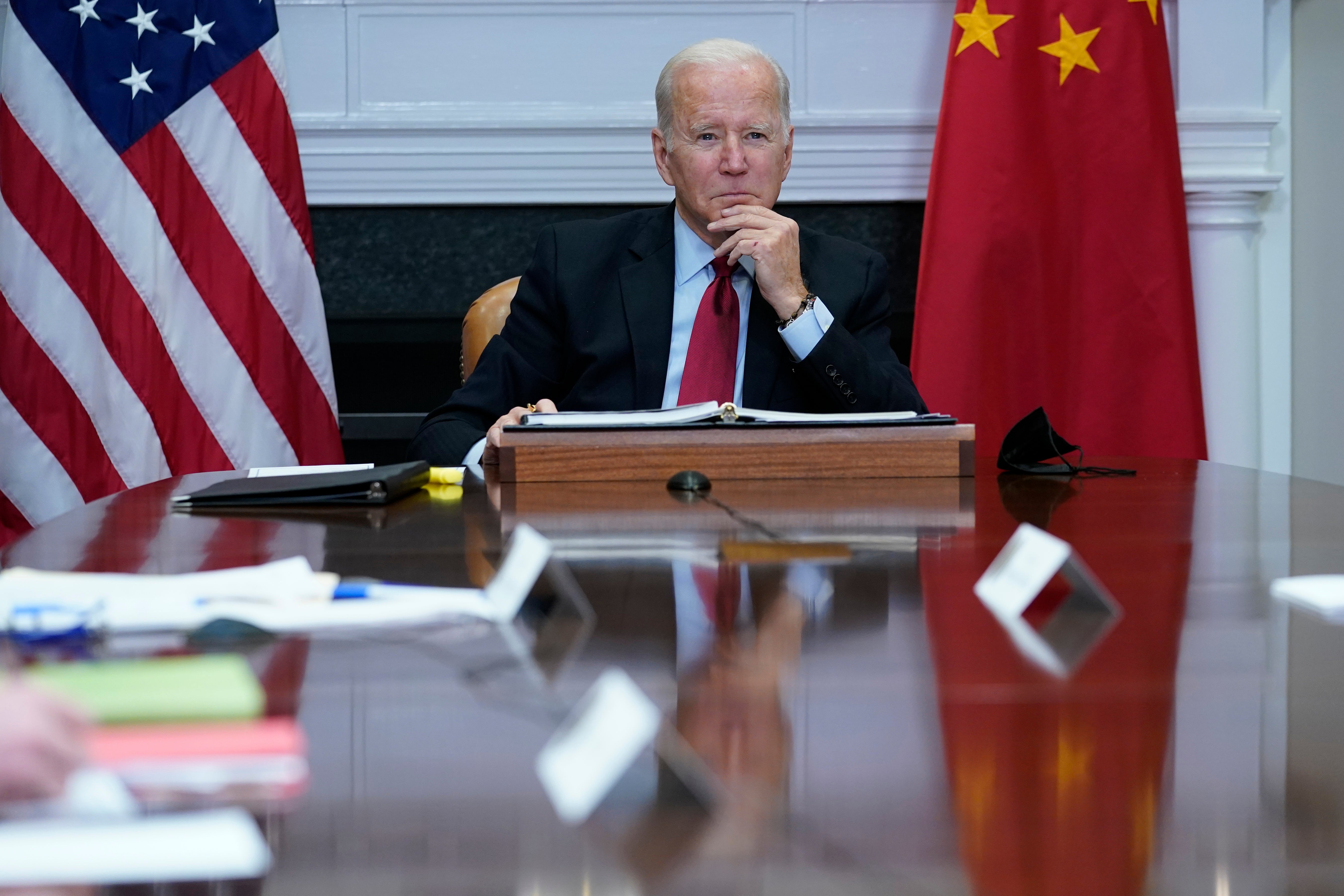The US has to stop pretending the last four years didn’t happen to revive the Iran nuclear deal
Building up any kind of trust or goodwill is the only way that a deal can be restored, writes Borzou Daragahi


How much easier it would be for the western diplomats, senior officials, and many others monitoring or commenting on the dispute over Iran's nuclear programme to just pretend that the past four years didn’t happen.
If Donald Trump hadn’t pulled the United States out of the Joint Comprehensive Plan of Action (JCPOA) and hadn’t launched a campaign of “maximum pressure” that derailed Iran’s economy and shifted its politics to the right, if Israel hadn’t assassinated Iranian military scientists and sabotaged its nuclear facilities (Israel does not acknowledge such activities although it is consistently blamed by Iran), then they could condemn Iran’s breaches of the deal and transgressions with righteous indignation. They could blame Tehran for the impasses and delays and make strident, hectoring demands on Iran on the eve of resuming talks over the possible restoration of the flailing nuclear deal.
Iran “must” return to the negotiating table and get back into compliance with the deal and its nuclear obligations, “must” do this and “must” do that. “Iran must resume implementation of the Additional Protocol,” Stephan Klement, the European Union’s envoy to the International Atomic Energy Agency, wrote on Twitter. “Treatment of inspectors in Iran must be consistent with IAEA agreement on privileges and immunities.”
In Persian, “must” sounds awfully close to the word for plain, white yogurt, and the hardline administration in Tehran is likely to ignore such diktats as a seventh round of talks to restore the JCPOA gets underway this week in Vienna.
From the West’s point of view, the worst thing about “maximum pressure” wasn’t that it severely damaged the economic dreams and livelihoods of 80 million Iranians. It wasn’t even that it empowered the hardliners now running the country, who are sure to up their demands and complicate any negotiations. It’s that it ultimately failed spectacularly. Even now the West has yet to fully realise the implications of that failure.
Since 2018, the US has imposed an effective blockade on Iran, punishing or threatening to punish any nation or entity that did business with the country in an attempt to strangle it. Even those with legitimate non-sanctioned businesses with Iran shied away for fear of drawing the scrutiny of US government busybodies. The Trump administration also gave de facto carte blanche to its own clandestine services and any of its allies seeking to undermine Iran.
But Iran survived Trump’s pressure – which continues to this day and was only possible because of the complicity of the European Union and the United Kingdom. It has even begun turning its economy around. The bitter truth is that the US and its allies simply don’t have the leverage that they had in 2015, when the JCPOA was signed, much less 2011, when the US managed to convince even Russia and China to impose United Nations sanctions on Iran. But they keep acting like they do.
Last week, US State Department spokesman Ned Price said Washington was unwilling to take any steps – such as unilaterally removing sanctions – simply to improve the atmosphere of the talks and that it would instead hope that vague threats will coax Iran back into compliance. In fact, earlier this month, the US loudly imposed new sanctions on Iran, over its alleged interference in last year’s elections.
“We are not willing and will not take unilateral steps as sweeteners to sweeten the pot just to get negotiations going,” said Price, before reverting to the same blustery B-movie language that has only escalated tensions between the US and Iran over the past 40 years.
If talks fail, “we’ll have to turn to other means,” he said. “We have a variety of other means. We’re discussing those with our allies and partners. In the category of things that aren’t prudent to discuss from here.”
One can understand the worries of Joe Biden's administration. It is watching daily as Iran’s stockpile of enriched uranium rises higher and higher. But Iran has its own concerns. It is likely to be watching Biden’s poll numbers sink lower and lower. In recent polling, Biden’s approval rating was floundering in key battleground states such as Wisconsin, Pennsylvania, Michigan, Georgia and Arizona that won him the presidency last year. The US has to stop pretending the last four years didn’t happen to revive the Iran nuclear dealand double down on “maximum pressure”.
Despite the US refusal to make any kind of gesture, building up any kind of trust or goodwill is the only way that the deal, which Iran was abiding for a year even after Trump launched “maximum pressure”, can be restored. That means ignoring “the blob” of foreign policy conventional wisdom in Washington and recognising that 2021 is not 2015.
“They should accept reality,” Iran’s negotiator Ali Bagheri Kani told Al Jazeera recently.
Contrary to Mr Price, the US does not have “other means” to get Iran to comply with its demands. Acts of sabotage have failed to halt Iran’s nuclear programme from expanding. Maximum pressure failed to crush Iran’s economy. Years of diplomacy have failed to coax veto-wielding UN Security Council members Russia and China from turning against Iran. The US has no will whatsoever to invade or bomb Iran, and Tehran knows it.
The only chance for the talks in Vienna to succeed is for creative and generous diplomacy on the part of the US, which triggered this crisis in the first place.






Join our commenting forum
Join thought-provoking conversations, follow other Independent readers and see their replies
Comments